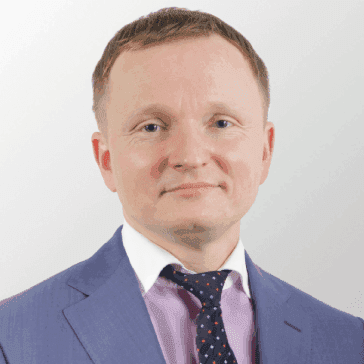Ece Gursoy is the Chief Legal Officer of Lightsource Renewable Energy Limited, a leading renewable energy developer in the UK. Prior to Lightsource, Gursoy practiced with Dentons in London and White & Case in Istanbul, specializing in Project Finance, Infrastructure, Energy and Privatization. Gursoy is admitted to the Law Society of England and Wales and the Istanbul Bar Association. She holds a LL.M. degree in Corporate and Commercial law from the University of London and a Ph.D. in European Competition Law and Economics from King’s College London.

Ece Gursoy
CEELM: You have a team of 18 lawyers working under you at Lightsource – including 3 Turkish lawyers. And you yourself are Turkish. Why so many Turkish lawyers? Do you have any other non-English lawyers working under you?
E.G.: The Turkish-qualified lawyers in my team are uniquely positioned to excel in the in-house system. They graduated in the top three of their Turkish law schools and also have outstanding academic backgrounds from prominent UK universities. The advantage that Turkish lawyers have is that their professional experience has given them a broad range of legal focus, as opposed to the English system which produces lawyers strictly specialized in certain areas of law. I find that this is more suitable for an in-house legal environment with cross-specialty demands. The fact that I have worked in two jurisdictions also makes me easily approachable to Turkish lawyers. Additionally, we have five UK-qualified solicitors in our team, three dual-qualified with French, Turkish and Irish qualifications alongside their UK qualifications, and three Australian, one Malaysian, one Spanish, and two New Zealand qualified lawyers.
CEELM: You’ve expressed dissatisfaction with the rigidity of law firms and the flexibility of (and business elements in) your role with Lightsource. Is there something you think law firms could or should do differently to become more attractive to lawyers like you in the future, or is that simply an unavoidable element of a major international law firm?
E.G.: It is a cliché but it is really important for a law firm to understand the needs of their client’s business, particularly if the assignment is not a one-off big project, but a series of projects in a given sector – as it usually is in Lightsource’s case. In my opinion, if a law firm wants to appear more attractive to its existing or prospective clients it is very important for them to offer centralized external legal support with sufficient resources.
In our business model, our projects are comprised of energy, regulatory, property, planning, construction, mergers and acquisition, and other specific finance structure aspects and we have an average pipeline of 40-65 projects in a given year. In order to achieve such ambitious targets on an ongoing basis, we need centralized external legal support as opposed to shopping around to each and every department of a law firm to complete a project. Strict specialization in various areas of law in a law firm usually causes disrupted communication between departments and affects the end result of the project itself, particularly in matters involving more than one aspect of law. Such miscommunication between departments also increases the hours that external lawyers charge in a given deal.
Law firms should also avoid putting their clients in the position of having to act as a middleman between separate departments of the same law firm specializing in different areas of law. One may argue that smaller boutique firms would have such capability due their size. However, the size of the law firm should not be an excuse – particularly for those clients in the energy and infrastructure sectors, as they seek fully-functional law firms with sufficient capacity. As such, one point of contact should be able to put together pieces of advice by assessing the full picture of a given project in order to provide the most efficient legal support to the client.
Another point that law firms should pay attention to is the internal management and allocation of proper resources (both in quantity and appointing the right level of expertise). These are as important as providing quality advice. The client should not be involved in or affected by the internal management of the external legal team.
I believe as long as law firms are able to provide a seamless service by creating efficient project teams with sufficient resources and with one client contact to run high-volume and deadline-sensitive projects, they will appear attractive to clients like Lightsource.
CEELM: You’ve also mentioned that, in your current position with Lightsource, you work the same kind of long hours as you did at the major law firms you’ve worked at before. Do you expect that to change over time – as the company itself becomes more established and your ability to delegate work to others grows – or is that fundamentally the nature of the role?
E.G.: It is the nature of the job and the company I’m afraid. I started alone in the legal team and built a team of 23 people within two years’ time. Lightsource has grown significantly in parallel over the past three years and has become the leading utility scale solar power generator in the UK. The sector itself is driven by very strict regulatory deadlines. If you want to benefit from the higher government incentives, you need to make sure that your projects are completed by the given deadline. In addition to such strict deadlines, if you have ambitious targets like acquiring, developing and constructing 300MW solar plants in a given year (it is 550MW for the year of 2014), you end up working on 20 different projects at the same time in a given month and completing at least 8-10 projects amongst them. Each year refinancing of the existing projects and management of the existing assets and fund structure are added on top of the development business. This accumulation creates significant ongoing business volume and you end up working the same kind of long hours as in private practice in addition to feeling the pressure and responsibility of the business.
Delegation is key and I have therefore established a fully functional legal team comprised of property, construction, corporate, and finance departments, all capable of working on various aspects of these projects. However, as the team leader I still need to steer the group in the right direction and supervise the projects day-to-day by considering the big picture and the Company’s global targets.
Lightsource may be a special case, however, private practitioners considering jumping ship to become in-house lawyers should bear in mind that in-house positions also demand constant long hours and heavy project volume. Being part of the business and involved in first-hand commercial decisions and seeing the results of their legal advice are also other appealing features of an in-house counsel role. However, not all lawyers really want to expose themselves to a first-hand decision making process and be directly liable for their decisions , without the overarching umbrella protection of a law firm or the supervisory protection of a partner.

All Lightsource Renewable Energy Installations
Source: lightsource-re.co.uk
CEELM: You come from a Project Finance background, but in your current role you work on everything from Real Estate to Regulatory to Share Purchasing Agreements to Operation and Maintenance Contracts, and much more. Do you find yourself enjoying some of these kinds of work more than others? Why is that?
E.G.: It is true that I am working in my current role in various aspects of law rather than focusing on PFI and renewables construction work that I was brought up with in private practice. Lightsource offers a lot of challenging structures due to its unique business model.
The job itself is intellectually challenging and all of the projects are different, so there is always room for surprise. Due to the particularities of the funding structures and the changing nature of the regulatory environment, you need to come up with new legal structures to meet the needs of the business and keep achieving your targets, which requires involvement in various aspects of law – from property law to corporate law and from construction law to finance law.
I personally find this mixture very appealing and I must say even though I still like working on construction finance and acquisition of sites through various acquisition structures and negotiating EPC contracts, I also enjoy working with my property colleagues on finding out the right route to point of connection for easements and wayleaves. In private practice, I never would have imagined that I would enjoy property work this much; it is like completing a jigsaw puzzle.
CEELM: Do you get any personal satisfaction from working in a “green” company, or do you focus more on the day-to-day work and questions of profitability than on the bigger picture?
E.G.: Working in the renewables sector with the aim of achieving the renewable energy targets and structuring the “green” business in line with the changing energy policies of the government for sure gives a particular professional fulfillment. But I believe that in order to achieve the global targets of the renewable sector one should first focus on the targets of each sector player, and therefore I focus on the day-to-day business and profitability of the company.
If the sector players do not achieve their own goals they cannot contribute to the greater good.
CEELM: How would you describe your management style: More hands-on, or more laissez-faire? Do you provide trainings, or do you expect them to learn and grow on the job? Can you provide any useful/interesting examples of empowering or team-building activities you’ve instituted?
E.G.: I bet my team members would describe me as the former! For sure this does not mean that I do not delegate. If you have a team of 23 people like we have in Lightsource you cannot be personally involved in each and every piece of work delivered by the team. In order to steer the legal team in the right direction to achieve the company’s goals, I need to keep myself involved in the day-to-day workload of the team by staying in close contact with each team leader and by organizing weekly legal team meetings where we discuss all the matters that the team is working on.
While establishing various departments in the legal team I personally give significant importance on team-building activities. I have given and continue to give various presentations and case study workshops on the general principles of contract law, and especially on the EPC contracts (one the core areas of our business), to both our in-house legal team and our commercial teams to make them more aware of the needs and expectations of our business.
In addition, every year we review the lessons learned the previous year and where necessary revise our template documents. I have also given and continue to give periodic presentations to non-lawyer members of the Lightsource team, especially to the development and delivery team of the Company who attend with the lawyers the negotiations of various contracts from commercial aspects, to make them more risk aware on basic principles of law.
CEELM: Finally, do you see yourself moving back to Turkey sometime, or are you in London for the long-term?
E.G.: For the moment there is still a lot to do at Lightsource, but no one knows what the future holds for us.
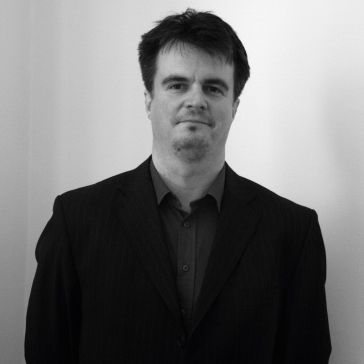
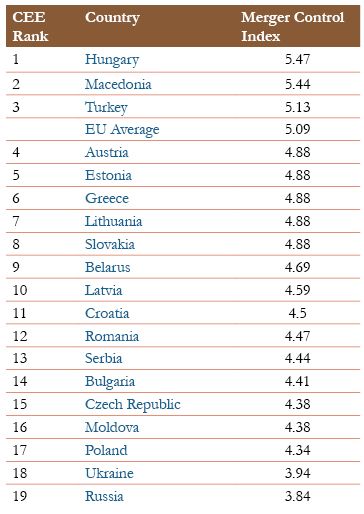
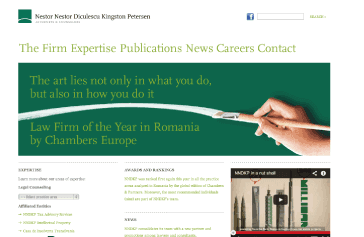
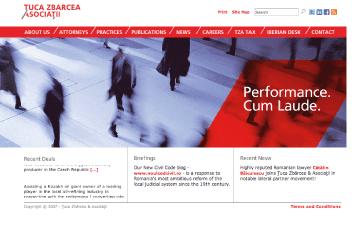



 If you would like to receive regular updates on CEE cases, deals, lateral moves and promotions, and legal awards or if you want to sign up to receive a hard copy of our upcoming magazine please
If you would like to receive regular updates on CEE cases, deals, lateral moves and promotions, and legal awards or if you want to sign up to receive a hard copy of our upcoming magazine please 